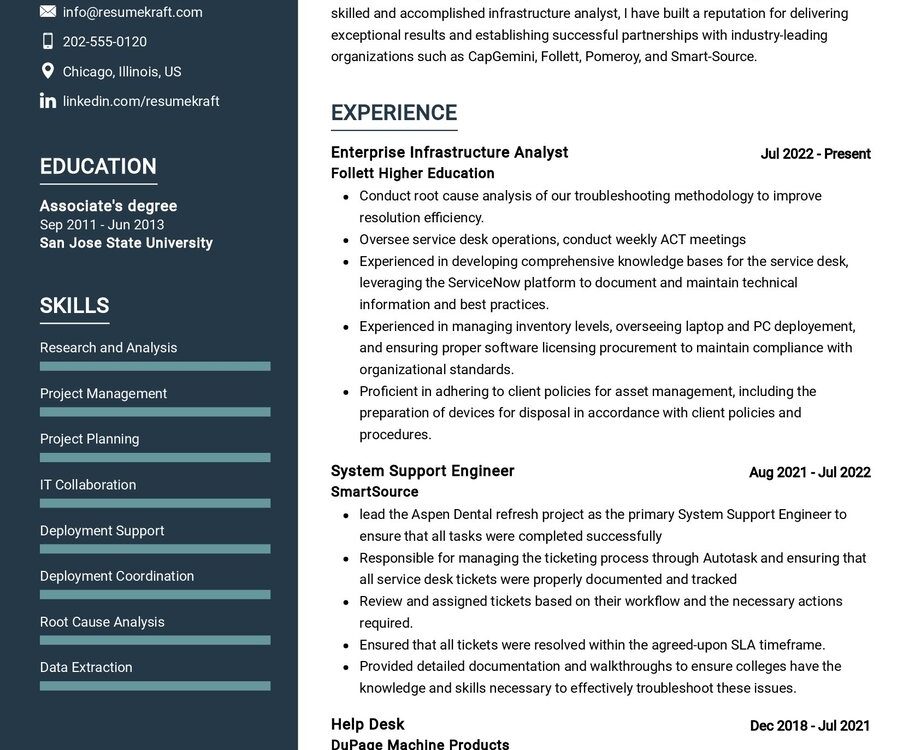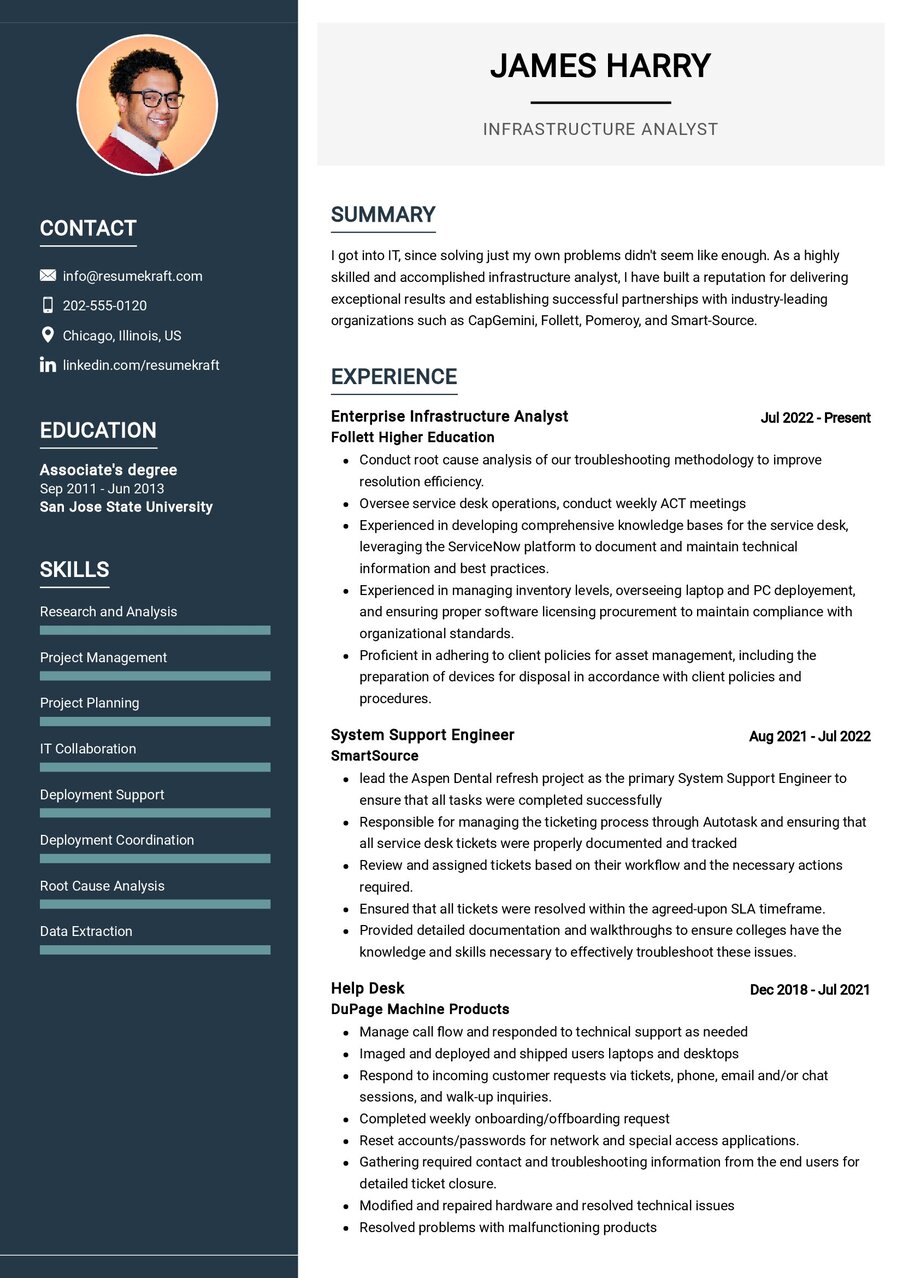Understanding the Role of an Infrastructure Analyst
As businesses increasingly rely on complex IT infrastructures, the role of an Infrastructure Analyst has become pivotal in ensuring the seamless operation of these systems. This article explores the multifaceted responsibilities, requirements, and skills needed for success in the role of an Infrastructure Analyst.
Job Requirements for an Infrastructure Analyst
Stepping into the role of an Infrastructure Analyst requires a combination of education, technical expertise, and problem-solving skills. Let’s delve into the key prerequisites for aspiring Infrastructure Analysts:
- A Bachelor’s or Master’s degree in Information Technology, Computer Science, or a related field, establishing a solid foundation in the technical domain.
- Extensive knowledge of IT infrastructure, including hardware, software, networking, and security protocols.
- Hands-on experience in system administration, network management, and troubleshooting to ensure the smooth functioning of IT systems.
- Strong analytical and problem-solving skills, honed through practical experiences and possibly certifications.
- Effective communication skills, crucial for collaborating with cross-functional teams and conveying technical information to non-technical stakeholders.
- Adaptability to evolving technologies and industry best practices, a trait vital in the dynamic field of IT.
Acquiring certifications such as CompTIA A+, CompTIA Network+, or Microsoft Certified: Azure Fundamentals can enhance your profile in the competitive job market.
Responsibilities of an Infrastructure Analyst
The role of an Infrastructure Analyst is dynamic and varied, encompassing tasks that are crucial for maintaining a robust IT infrastructure. Here are the key responsibilities associated with this role:
- Monitoring and optimizing IT systems for performance, security, and reliability.
- Collaborating with IT teams to design and implement infrastructure solutions that align with organizational goals.
- Providing technical support and troubleshooting issues to minimize downtime and ensure a smooth workflow.
- Conducting regular system audits to identify vulnerabilities and implementing necessary security measures.
- Assessing the impact of new technologies on existing systems and making recommendations for upgrades or improvements.
- Documenting system configurations, changes, and procedures to maintain a comprehensive knowledge base.
- Participating in disaster recovery planning and testing to ensure business continuity in case of system failures.
Each responsibility comes with its own set of challenges, offering opportunities for growth and continuous learning.
Infrastructure Analyst CV Writing Tips
Crafting a compelling CV is essential to showcase your skills and experiences effectively. Here are some tips to create a standout Infrastructure Analyst CV:
- Highlight specific projects where you played a key role in enhancing IT infrastructure or resolving critical issues.
- Quantify your achievements, using metrics to demonstrate the impact of your contributions on system efficiency and reliability.
- Include relevant technical skills, specifying your proficiency in tools, software, and operating systems.
- Showcase your certifications and continuous learning initiatives, emphasizing your commitment to staying updated with industry trends.
- Customize your CV for each application, aligning it with the specific requirements of the Infrastructure Analyst role.
Your CV is not just a document; it is a tool to narrate your career story and demonstrate your suitability for the Infrastructure Analyst position.
Infrastructure Analyst CV Summary Examples
Your CV summary is the first impression you make on potential employers. Make it impactful and concise. Here are some examples to inspire you:
- “Dedicated Infrastructure Analyst with over 8 years of experience, skilled in optimizing IT systems for peak performance and ensuring seamless operations.”
- “Results-driven Infrastructure Analyst with a proven track record in designing and implementing robust IT solutions, enhancing organizational efficiency.”
- “Experienced Infrastructure Analyst adept at troubleshooting and providing technical support, contributing to the reliability of IT infrastructures.”
Each summary is a snapshot of your career, providing a glimpse of your expertise and value as an Infrastructure Analyst.
Creating a Strong Experience Section for Your Infrastructure Analyst CV
Your experience section is the core of your CV, detailing your journey and accomplishments. Here are examples to guide you:
- “Led the implementation of a network upgrade, resulting in a 15% improvement in overall system performance.”
- “Spearheaded a disaster recovery plan, ensuring minimal downtime during a critical system failure and safeguarding business continuity.”
- “Collaborated with cross-functional teams to integrate new software solutions, streamlining business processes and enhancing productivity.”
Each experience is a chapter in your career story, illustrating your ability to overcome challenges and contribute to the success of IT infrastructure.
Education Section for Your Infrastructure Analyst CV
Your educational background is a vital part of your CV, showcasing your academic achievements and qualifications. Here’s how you can present your education:
- Master of Science in Information Technology, XYZ University, 2017.
- Bachelor of Science in Computer Science, ABC University, 2014.
- CompTIA Network+ Certification, demonstrating proficiency in network management, 2018.
Each educational qualification is a stepping stone, contributing to your expertise as an Infrastructure Analyst.
Skills Essential for an Infrastructure Analyst CV
Your skill set is your toolkit, equipped with a diverse range of tools essential for success in the role of an Infrastructure Analyst. Let’s list down the key skills you should possess:
Soft Skills:
- Problem-solving and analytical skills, crucial for identifying and resolving issues in IT systems.
- Effective communication, both verbal and written, to convey technical information clearly to different stakeholders.
- Team collaboration, working seamlessly with IT teams and other departments to achieve common goals.
- Attention to detail, ensuring accuracy in system configurations and documentation.
- Adaptability and resilience, the ability to navigate and thrive in a rapidly changing IT landscape.
Hard Skills:
- System administration, proficient in managing and configuring hardware and software components.
- Network management, expertise in designing, implementing, and maintaining network infrastructures.
- Security protocols, knowledge of best practices and measures to safeguard IT systems from potential threats.
- IT auditing, conducting regular audits to identify vulnerabilities and areas for improvement.
- Project management, overseeing and coordinating infrastructure projects from initiation to completion.
Each skill is a valuable asset, contributing to your effectiveness as an Infrastructure Analyst.
Common Mistakes to Avoid When Writing an Infrastructure Analyst CV
Avoiding common pitfalls in your CV is crucial for creating a positive impression. Here are some mistakes to steer clear of:
- Using generic language, personalize your CV to highlight your unique skills and experiences.
- Focusing solely on job duties, emphasize your achievements and the impact of your contributions.
- Neglecting the cover letter, use it as an opportunity to express your enthusiasm for the role and showcase your personality.
- Overloading your CV with technical jargon, ensure it remains accessible to non-technical readers.
- Skipping proofreading, errors can undermine your professionalism and attention to detail.
Avoiding these mistakes ensures your CV stands out as a compelling representation of your skills and experiences.
Key Takeaways for Your Infrastructure Analyst CV
As you craft your Infrastructure Analyst CV, keep these key points in mind:
- Emphasize specific achievements, showcasing the impact of your contributions to IT infrastructure.
- Highlight your technical proficiency, specifying your skills in system administration, network management, and security protocols.
- Detail strategic initiatives, illustrating your ability to design and implement effective IT solutions.
- Include a section on continuous learning, emphasizing certifications and courses that enhance your qualifications.
Finally, feel free to utilize resources like AI CV Builder, CV Design, CV Samples, CV Examples, CV Skills, CV Help, CV Synonyms, and Job Responsibilities to create a standout application and prepare for the Infrastructure Analyst job interview.
Armed with these insights and tips, you are now ready to craft a CV that is a true reflection of your journey, your skills, and your aspirations. Remember, your CV is not just a document; it is a canvas where you paint your career story, a story of growth, learning, and success. Best of luck!


